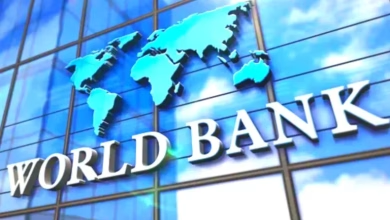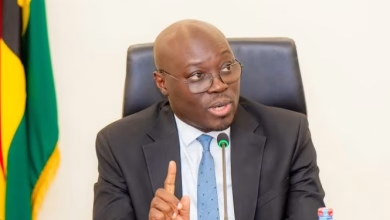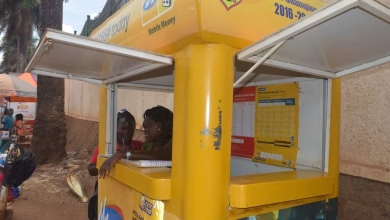Experts Rule Out Human Activity In Undersea Fibre Cut – Ursula Tells Parliament

- The unprecedented disruptions in data services caused by cuts in undersea fibre cables was not caused by any human activity
- The disruptions have severely impacted various sectors including economic, commercial, academic, and social activities
- Mrs Owusu-Ekuful reiterated the government's dedication to addressing the crisis and restoring full capacity for data services
The Minister of Communications and Digitalisation, Ursula Owusu-Ekuful, on Monday told Parliament that the unprecedented disruptions in data services caused by cuts in undersea fibre cables was not caused by any human activity.
She told her colleague legislators that experts have ruled out any human activity as the cause of the fibre cuts, “Given the distance from land and the cable depth which is reported to be about five kilometres under sea as the point of the fault, any kind of human activity, ship anchors, fishing, drilling, etc. has been immediately ruled out by the experts.”
The disruptions, which have severely impacted various sectors including economic, commercial, academic, and social activities, have raised concerns about the reliability of Ghana’s telecommunications infrastructure.
Ursula’s briefing of Parliament followed requests by her colleague lawmakers to who insisted the enormity of the challenge required that Ghanaians are told what measures were being undertaken to rectify the situation.
Mrs Owusu-Ekuful highlighted the proactive measures taken by the National Communications Authority (NCA) in collaboration with mobile network operators (MNOs) and internet service providers (ISPs) to assess and enhance the resilience of Ghana’s connectivity.
She said in 2020, the NCA directed MNOs and broadband wireless access providers to establish physical connections to at least three submarine cable operators/providers operating in Ghana to mitigate risks during emergencies.
MTN, Telecel, Surfline and AT complied with the directive, establishing connections to multiple submarine cable operators, including ACE, WASC, MainOne, and SAT-3. Notably, AT went further by establishing a connection with an external submarine cable provider, WAYOC, through the WASC cable, ensuring uninterrupted service even during the recent outage.
Despite the disruptions, Minister Owusu-Ekuful assured Parliament that interim measures are being implemented to restore and improve data services. Collaboration with international partners in the sub-region has led to the addition of more capacity for data services, leveraging existing fibre connectivity between Ghana and Nigeria via the ACE cable.
She acknowledged the incremental improvements in consumer experience and emphasised the NCA’s commitment to issuing regular communications until full restoration of services is achieved.
However, she noted that restoration efforts require permits from authorities in Cote d’Ivoire and/or Senegal, where the damaged cables are located.
Mrs Owusu-Ekuful reiterated the government’s dedication to addressing the crisis and restoring full capacity for data services. She emphasised the importance of ongoing collaboration with international partners and the NCA’s role in ensuring the reliability and resilience of Ghana’s telecommunications infrastructure.
The briefing provided insight into the challenges posed by the undersea fibre cuts and the proactive measures being taken to mitigate their impact, reassuring Parliament and the public of the government’s commitment to resolving the issue swiftly and effectively.






